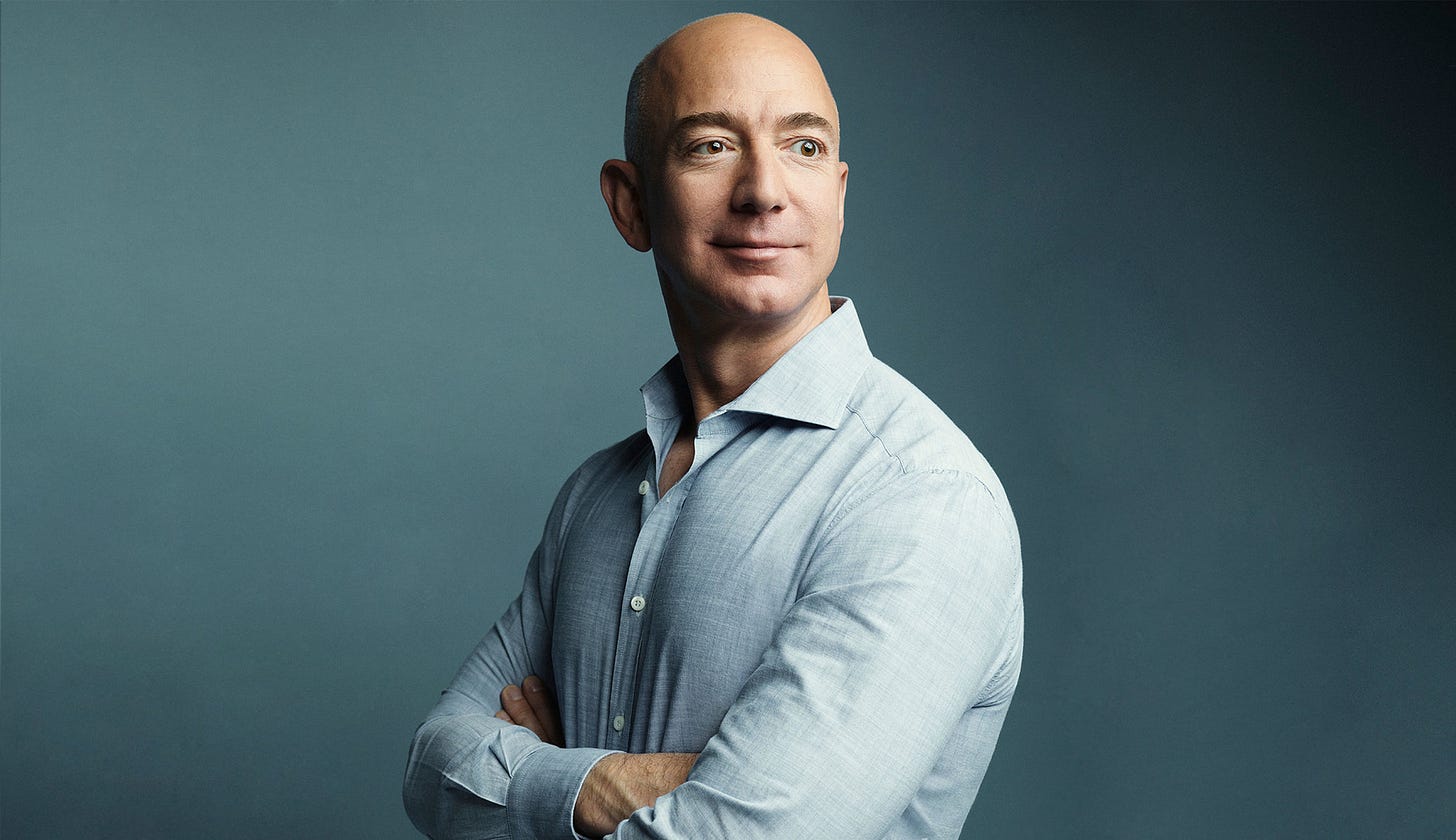Some may think uber successful Amazon founder Jeff Bezos, the billionaire, is a rigid thinker and domineering leader. While that could be factual at times, assuming he’s only that is erroneous. In reality, he’s much different.
Bezos has "observed that the smartest people are constantly revising their understanding, reconsidering a problem they thought they'd already solved. They're open to new points of view, new information, new ideas, contradictions and challenges to their own way of thinking,” Jason Fried, founder at Basecamp, said.
It’s a thinking process and risk management behavior that Marcel Schwantes elaborates on at Inc. magazine.
“The smart and successful ones admit when they are wrong. As leaders who frequent my musings, I hope you're putting serious thought into practicing this form of intellectual humility. The brutal truth of it takes one courageous first step: It's admitting when you make the wrong choices while being open to considering other people's ideas,” he writes.
Watch this short video (less than two minutes) of a Bezos’ interview and see exactly, clearly what he’s talking about. It will reveal what the great CEO or any leader, highly accomplished and praised, is thinking and willing to do and does do on at least an occasional basis.
“I would often be the one to disagree and commit,” Bezos said. “One of my direct reports would very much want to do something in a particular way. I would think it was a bad idea. I would explain my point of view.
“They would say, ‘Jeff, I think you’re wrong and here’s why.’ And we would go back and forth and I would often say, ‘You know what? I don’t think you’re right but I’m going to gamble with you. And you’re closer to the ground truth than I am. I’ve known you for 20 years and you have great judgment. I don’t know if I’m right either, not really. Not for sure.’ All these decisions are complicated. Let’s do it your way.’
“But at least then you’ve made a decision and I’m agreeing to commit to that decision so I’m not going to be second guessing it or sniping at it. I’m not going to be saying, ‘I told you so.’ I’m going to try actively to help make sure it works. That’s a really important teammate behavior.”
Schwantes points to the research, with the findings maybe being surprising to some people. “A seven-year study involving 12,000 people, published in the book Performing Under Pressure, found that admitting when one is wrong is a rare behavior highly correlated with top performers. In fact, those in the top 10 percent of performers were distinguished from average performers by their ability to admit their mistakes.”
What do you think about that?
Fear and ego both often get in the way of admittance of mistakes or big errors.
Schwantes says this could possibly work for you too.
“Admitting to being wrong also has been found to be positively correlated with promotion,” he writes. “Therefore, when identifying potential leaders, it is essential to look for individuals willing to acknowledge their mistakes.”
Do you notice what’s happening here?
Secure, humble people want the best answers, even if they are different or far different than the leader’s and if those ultimate decision-makers can practice humility and in a sincere way and with curiosity, then tremendous outcomes, maybe groundbreaking, become possible.
They also know the value of honest communication and healthy, trustworthy relationships — and without clarifiers, verbally and in the written word if necessary, own their errors.
You can disagree and still be open to learning from others and support their clear, detailed, high-potential ideas and propositions. You can communicate that you may not be correct. No one will think less of you for doing so.
Your reputation will be stronger for trusting in the team you built and entrusted to help you navigate the mission.
Michael Toebe is a reputation consultant, advisor and communications specialist at Reputation Quality, assisting individuals and organizations with further building reputation as an asset or ethically protecting, restoring or reconstructing it.
Promote yourself, business and offering in Reputation Intelligence with a color ad or audio or video clip and a link or two. For an ad placement in one issue: $500. For a month of placements in every article: $2,500.







